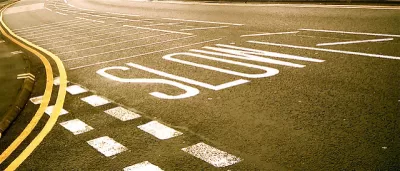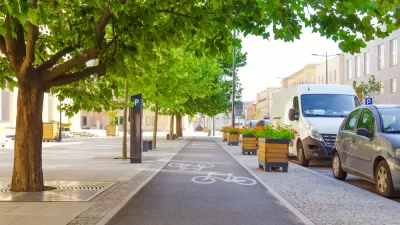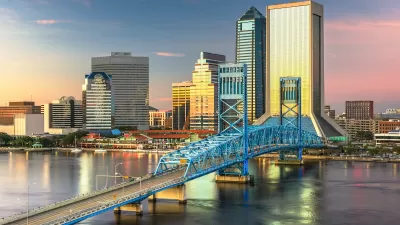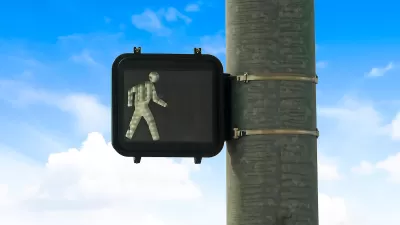While other countries are seeing fewer road deaths, traffic violence in the United States is back on the rise.

The rate of Americans dying in traffic crashes far outpaces that of most other developed nations, reports David Zipper for Bloomberg CityLab, begging the question: why?
While many Americans attribute the higher rate of road deaths to our reliance on cars, Zipper argues that, based on his extensive research on the topic, “The closer you look, the clearer it becomes that the US traffic safety crisis is not a reflection of geography or culture,” but rather of conscious policy decisions that privilege fast car travel and carmakers over road safety and multimodal transportation.
According to Zipper, this phenomenon took off more recently. In the 1970s and 1980s, the United States could claim to be a leader in road safety as innovations such as seatbelts and airbags became mandatory. “But in the last 30 years, the US has not kept pace with tumbling traffic death rates in Europe, east Asia and Canada. In 2021, as the US hit a 16-year high for fatalities, Japan and Norway posted the lowest number of road deaths since the 1940s.” Pedestrian death rates in the United States rose at even more alarming rates.
Zipper attributes this to a variety of factors, including the rise of car-free and ‘car-light’ zones in European cities, as well as the use of automatic traffic cameras and other safety improvements like road diets and roundabouts. Regulations on vehicle design play a role, too: “The European Union added pedestrian safety tests to NCAP crash ratings over two decades ago, and Japan, China and Australia now conduct them as well. The US still does not.” Other factors include comparatively low fuel taxes in the United States, land use patterns that encourage driving, and poorly resourced public transit systems.
Zipper suggests that the easiest solutions are the simplest. There’s no need to wait for technology to save us. Proven, analog tools for slowing traffic and prioritizing pedestrian safety already exist.
FULL STORY: US Traffic Safety Is Getting Worse, While Other Countries Improve

Maui's Vacation Rental Debate Turns Ugly
Verbal attacks, misinformation campaigns and fistfights plague a high-stakes debate to convert thousands of vacation rentals into long-term housing.

Planetizen Federal Action Tracker
A weekly monitor of how Trump’s orders and actions are impacting planners and planning in America.

San Francisco Suspends Traffic Calming Amidst Record Deaths
Citing “a challenging fiscal landscape,” the city will cease the program on the heels of 42 traffic deaths, including 24 pedestrians.

Defunct Pittsburgh Power Plant to Become Residential Tower
A decommissioned steam heat plant will be redeveloped into almost 100 affordable housing units.

Trump Prompts Restructuring of Transportation Research Board in “Unprecedented Overreach”
The TRB has eliminated more than half of its committees including those focused on climate, equity, and cities.

Amtrak Rolls Out New Orleans to Alabama “Mardi Gras” Train
The new service will operate morning and evening departures between Mobile and New Orleans.
Urban Design for Planners 1: Software Tools
This six-course series explores essential urban design concepts using open source software and equips planners with the tools they need to participate fully in the urban design process.
Planning for Universal Design
Learn the tools for implementing Universal Design in planning regulations.
Heyer Gruel & Associates PA
JM Goldson LLC
Custer County Colorado
City of Camden Redevelopment Agency
City of Astoria
Transportation Research & Education Center (TREC) at Portland State University
Jefferson Parish Government
Camden Redevelopment Agency
City of Claremont





























